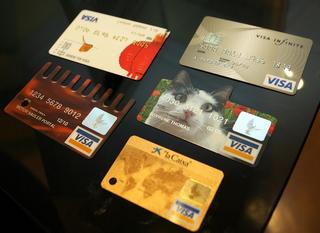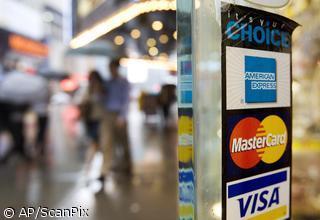But don_t blame Y2K: Digital certificates set to expire.
Published:
30 December 1999 y., Thursday
Millions of people using older versions of Netscape and Microsoft Web browsers may not be able to access some personal finance and e-commerce sites starting Jan.1.
It won_t be due to the dreaded Y2K bug. Instead, it_s because electronic credentials embedded in browsers are set to expire on Dec. 31 at midnight.
These ``digital certificates'' are built into individual browsers and issued by Mountain View-based VeriSign to about 150,000 commerce and finance sites. They_re used to ensure secure transactions by verifying that both the site and user are who they say they are.
The expiration of certificates could affect users of Netscape browser versions 4.05 and earlier, and Macintosh users who downloaded Microsoft_s Internet Explorer 4.5 and Outlook Express 5 before Dec. 21. To fix the problem, users need to download the latest versions of Netscape or Internet Explorer.
About 5 million to 10 million Netscape users will be affected, said Chris Saito, Netscape_s senior director of product marketing. About 2.1 million Macintosh users who have Microsoft_s Internet Explorer 4.5 will also be affected.
When those users visit any one of the 150,000 sites, they will receive a warning to upgrade their browser or be blocked from accessing the site until they upgrade their browser.
Microsoft, which is scrambling to notify users, said it won_t be able to guarantee that transactions conducted using the older browsers will be secure.
For its part, Netscape is also urging users to upgrade their browsers, Saito of Netscape said.
Other sites are posting reminders. Ben Golub, VeriSign_s director of Internet marketing and sales, said the Dec. 31 expiration date was chosen about five years ago because at the time browsers couldn_t accept dates beyond 1999.
Copying, publishing, announcing any information from the News.lt portal without written permission of News.lt editorial office is prohibited.
The most popular articles
Software company announced new structure_ of it_s business.
more »
 The iPhone's new “ATM Hunter” is a a free iPhone application built by MasterCard that allows users to quickly find the ATMs that are closest to them.
more »
The iPhone's new “ATM Hunter” is a a free iPhone application built by MasterCard that allows users to quickly find the ATMs that are closest to them.
more »
 In security breach cases last year, such as Hannaford Bros. supermarket and the card processing firm Heartland Payment Systems, cybercriminals gained access to millions of consumers' credit card details.
more »
In security breach cases last year, such as Hannaford Bros. supermarket and the card processing firm Heartland Payment Systems, cybercriminals gained access to millions of consumers' credit card details.
more »
 Ingenico, a provider of payment solutions, says contactless technology will split the retail market this year, improving sales figures for early adopters and costing those who shun the additional investment in this burgeoning technology.
more »
Ingenico, a provider of payment solutions, says contactless technology will split the retail market this year, improving sales figures for early adopters and costing those who shun the additional investment in this burgeoning technology.
more »
 Widevine Technologies today announced that the US Patent and Trademark Office has reconfirmed the validity of many claims of Widevine's U.S.
more »
Widevine Technologies today announced that the US Patent and Trademark Office has reconfirmed the validity of many claims of Widevine's U.S.
more »
 Nokia Corp., the world's largest maker of cell phones, is making a large investment in California-based Obopay Inc., a startup that's pushing person-to-person mobile-payments technology.
more »
Nokia Corp., the world's largest maker of cell phones, is making a large investment in California-based Obopay Inc., a startup that's pushing person-to-person mobile-payments technology.
more »
 The increasing amount of overlap and duplication of data, tasks and processes in their anti-fraud and anti-money laundering divisions is driving banks to seek synergies between compliance, risk management and security, according to a new report from Datamonitor.
more »
The increasing amount of overlap and duplication of data, tasks and processes in their anti-fraud and anti-money laundering divisions is driving banks to seek synergies between compliance, risk management and security, according to a new report from Datamonitor.
more »
 The total number of IPTV subscribers worldwide passed the 20mn mark at the end of 2008, according to new figures from Informa Telecoms & Media, taking into account both disclosed and estimated figures.
more »
The total number of IPTV subscribers worldwide passed the 20mn mark at the end of 2008, according to new figures from Informa Telecoms & Media, taking into account both disclosed and estimated figures.
more »
 The IPTV World Forum opened its doors this morning on a bright London day, and the mood was equally optimistic indoors, with the conference rooms packed for keynote presentations from Christopher Schläffer of Deutsche Telekom, Christophe Forax from the European Commission and the BBC's Richard Halton, charged with making Project Canvas a reality.
more »
The IPTV World Forum opened its doors this morning on a bright London day, and the mood was equally optimistic indoors, with the conference rooms packed for keynote presentations from Christopher Schläffer of Deutsche Telekom, Christophe Forax from the European Commission and the BBC's Richard Halton, charged with making Project Canvas a reality.
more »
 A new Gartner Inc. report suggests that financial fraud could drive consumers away from banks and into the arms of electronic payment systems, such as PayPal, that they perceive to be more secure.
more »
A new Gartner Inc. report suggests that financial fraud could drive consumers away from banks and into the arms of electronic payment systems, such as PayPal, that they perceive to be more secure.
more »
 In the last year this more than doubles the number of cards and devices in circulation around the world.
more »
In the last year this more than doubles the number of cards and devices in circulation around the world.
more »